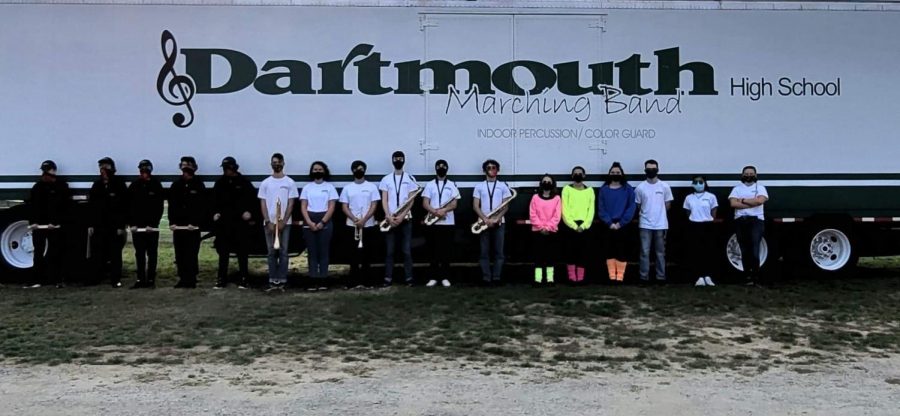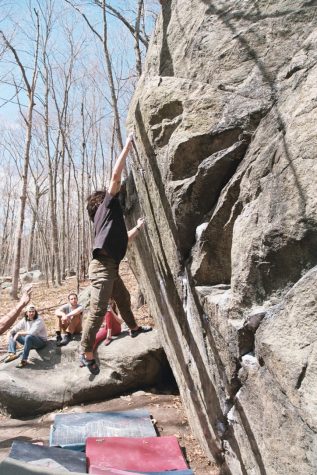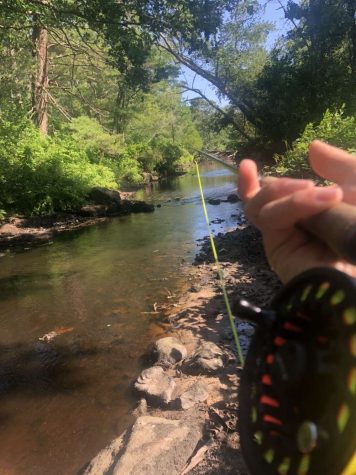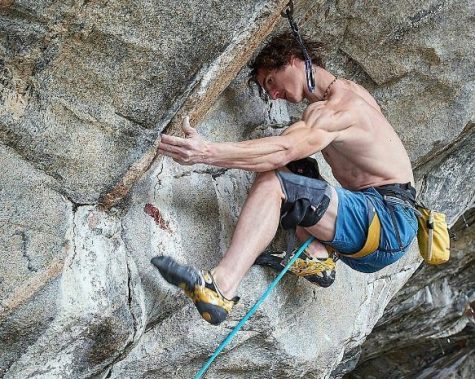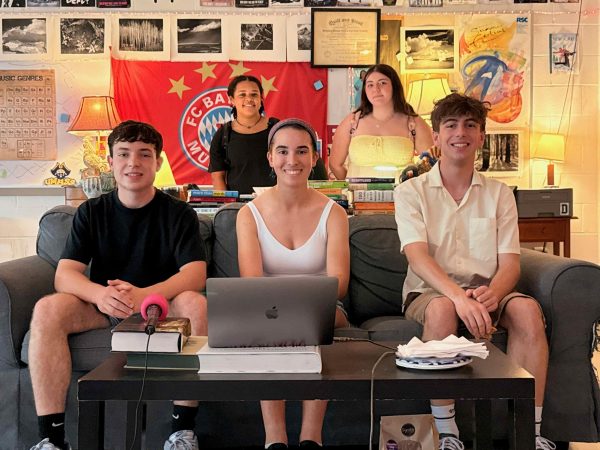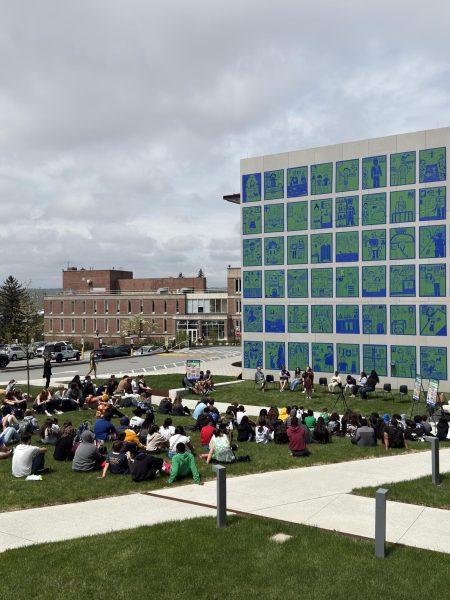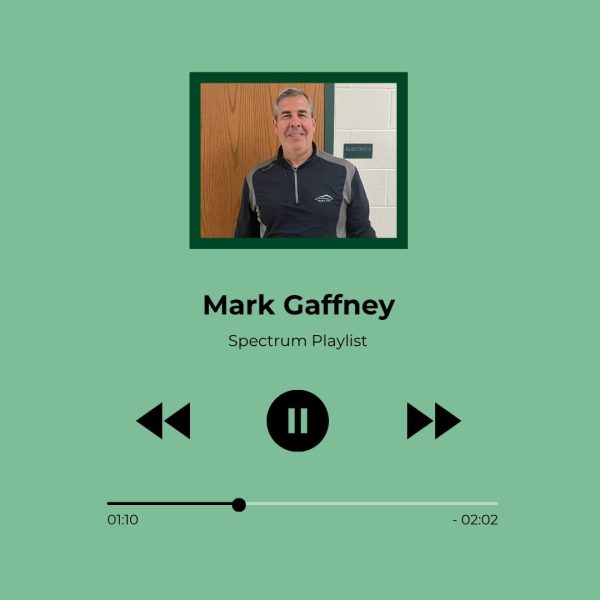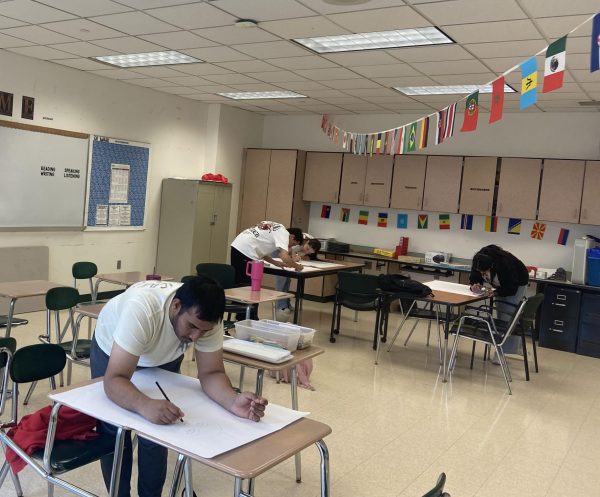The show goes on (virtually, that is)
The DHS Marching Band survives first-ever virtual competition season
The seniors across all three groups pose for a photo after the virtual Bands of America live performance October 24.
COVID-19 has caused many activities and events to be postponed, if not canceled altogether. However, the DHS marching band has adapted and overcome the many restrictions and boundaries to still produce a high quality show.
New Director of Music Ian Flint, among other instructors, sat down in late spring discussing all the possibilities to bring a fall season to fruition. Among all the options being discussed, Mr. Flint emphasized his main goal was and continues to be to keep members “safe and healthy by doing things the right way.”
After brainstorming different plans for a fall season, the staff decided to proactively split into three groups; winds, percussion, and color guard.
This way, if state restrictions banned gatherings of more than 50 people down the road, which ended up happening, they would be prepared and the band wouldn’t have to break up and start from scratch.
Color guard and percussion wear masks while they perform, and their separate shows were designed with performers six feet apart.
However, since the winds (woodwinds and brass) cannot play with face coverings on, each performer is required to be at least 10 feet apart.
The separation requirement coupled with the lack of a percussive voice, in the winds group especially, makes it more difficult to play as a cohesive unit because the “percussion pushes the tempo and keeps us moving,” said junior piccolo player Kira Perry.
Members of the marching program also stressed the difference that virtual performances have had on the overall experience.
Senior tenor drum player Jason Silva said, “Performing, I love performing in front of people,” but “not performing in front of people is tough.”
The marchers explained how a live audience brings on a pressure and stress to perform at a high achieving level. The show nerves, caused by traveling to other schools and performing in front of an audience, are lost this year because the groups can record as many run-throughs of their show as desired before picking the best one to submit.
USBands, one of the usual competition circuits Dartmouth competes in, is holding virtual competitions for groups to submit video recordings and still receive adjudicator feedback.
Senior Madison Bettencourt said that even though “it is not what I expected senior year, I am trying to be positive, and I appreciate that they figured something out.”
Mr. Flint expressed his appreciation to students for “going about it like a normal year, working hard with a ton of effort.” He credits the uniqueness of the system in Dartmouth for fostering the drive to achieve at a high level and remain dedicated even without an apparent trophy or competition in sight.
Additionally, Mr. Flint, applauding the leadership and commitment of the senior class, said, “We owe the success of this year to the seniors.”
To adapt to the many restrictions and changes, percussion and color guard play music and other wind instrument recordings through speakers during their shows, to still bring the element of a winds section in its absence. The winds have used free-flowing visual aspects and a drum set and rhythm section to supplement a percussion and color guard feeling.
Players, disappointed all three groups aren’t together, are still grateful for the ability to perform and connect with some of their friends. Even new members, who, in theory, may not have had the same opportunity to build these relationships as they may have gotten to in previous years, still express the feeling of the band and color guard as a family. Eighth-grader alto saxophone player Carlos Jeronimo said, “We are one big family. I knew I wanted to be a part of it since I started playing sax.”
As for the COVID-19 regulations such as wearing masks, Silva said, “It’s tough but not that bad.” Silva said he and his peers were able to ignore the masks and focus on the task at hand: a high-level performance.
Overall, Mr. Flint is very pleased with this season. Considering the obstacles, he said, “It turned out better than expected.”
And when asked if he’s optimistic for a normal season next year, Mr. Flint said, “definitely” and that “it will take time, but everyone in music education is working towards that [goal] to be back to a regular season.”

